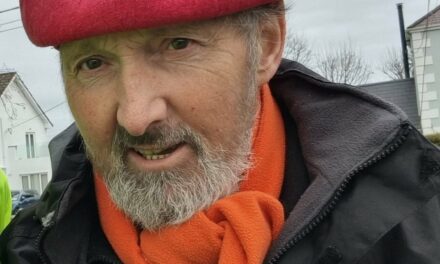EXCERPT: “This Climate Bill substantially improves the 2015 law, but substantial weaknesses remain that must be fixed by TDs and Senators.” – Oisín Coghlan
On October 12th, co-ordinators of the Stop Climate Chaos coalition group – Oisin Coghlan and Sadhbh O’Neill – hosted a webinar discussing the recently published Climate Action Bill.
The campaign group includes environmental, overseas aid, youth and faith groups, and it has been calling for a strong climate law since 2007. It co-ordinated the campaign that led to the passing of the 2015 Climate Action Act.
Oisín Coghlan, co-ordinator of the campaigning coalition said:
“This Climate Bill substantially improves the 2015 law, but substantial weaknesses remain that must be fixed by TDs and Senators.”
The webinar panelists also included Dr Diarmuid Torney who specialises in climate politics and Prof. John Sweeney, climatologist.
Climate Action Bill 2020 vs 2015
Dr. Tormey explained how the Climate Advisory Board operates in a similar role to how NPHET does and this, he said, was appropriate. He said the Bill was a marked improvement on the 2015 document. It explicitly sets out a more balanced and more diverse policy planning framework.
However, the fact that there is no obligation by the government to meet the 2050 goal of zero emissions, is a clear cause for concern. There is no legally binding element to this and so the focus seems to be on planning for a carbon budget but with no guarantee that this will be met.
Prof. Sweeny, a climate scientist, dug deep into the language of the Bill and described it as weak. He pointed to the usage of words such as “pursue” being used instead of “achieve” and said, “These action words are necessary requirements for compliance.”
He noted that the word “may” appears 45 times in the document, which really drilled home his point about the use of “weasel words” giving the Bill a lot of uncertainty.
There is also a compliance gap in relation to individual sectors that must play their part to meet the targets. What was most stark of all was his closing piece when he examined what was missing in the Bill:
• No sanctions.
• No criteria for Ireland’s carbon budget.
• No phasing out of fossil fuel cars.
• No international dimension regarding biodiversity.
• Loopholes that give the minister of the day extensive discretion to amend elements of Bill as s/he sees fit.
Returning again to the use of language, he noted we are not required to “achieve” the 2050 target, but to “pursue” it.
To quote the legislation:
“The State shall pursue the transition to a climate resilient and climate neutral economy by 2050.”
It can be fixed
Closing the seminar, Sadhbh O’Neill sounded a more positive and hopeful tone, saying that while there are issues in the Bill, these can be fixed.
She said that climate governance needs joined-up thinking and should include clear obligations. She criticised the exclusion of methane gas as a separate target for agricultural sectors and said that this was a major legal loophole that needed amending.
She said the “wooliness” of the language used was unhelpful and confusing.
She stressed that the highest level of ambition needs to be reflected by this bill and that the definition of the carbon budget needs amending.
People Power
Oisin Coughlan summarised the seminar’s view when he said the Bill is not going to break new ground. He described it as “not bad for 10 years ago, but not enough for now”.
He urged those sitting in on the webinar to engage with their TDs and take action by being part of the movement to ensure these amendments happen.





